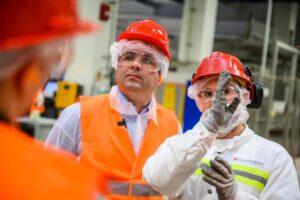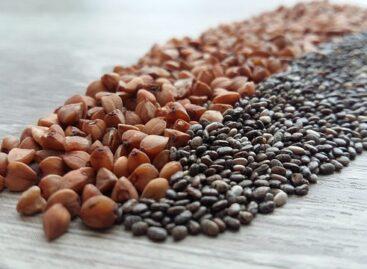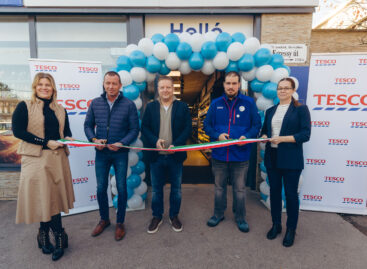One of the European centers of pet food production is located in Bük
The pet food that rolls off the most modern production lines and is also produced with domestic grain reaches the four-legged pets living in more than 40 countries around the world, said Dr. Márton Nobilis, State Secretary of the Ministry of Agriculture responsible for food industry and trade policy, during a visit to the Nestlé Animal Feed factory in Bük.

The state secretary emphasized that Nestlé processes more than 78,000 tons of raw materials of domestic origin every year, and in the last 10 years it has bought more than 900,000 tons of grain from Hungarian farmers. Maize, wheat, barley, rapeseed and meat come from Hungarian, audited suppliers, who can therefore also be part of Nestlé’s European supplier circle. Márton Nobilis added that more than 2,400 people work at Nestlé in Hungary, and thanks to the investment in Bük, the number of local employees has tripled in 10 years.
During the factory visit, Nestlé presented its vocational training program
As part of this, students have the opportunity for practical training as an electronic instrument technician and electrician in the factory. Bagdán Boglárka, head of the Department of Agricultural Vocational Training at the Ministry of Agriculture, highlighted the importance of cooperation with both companies and farmers in the future, because training courses must be designed in such a way as to provide marketable knowledge to the future workforce.
AM
Related news
GLP 1: passing hype or a lasting trend?
🎧 Hallgasd a cikket: Lejátszás Szünet Folytatás Leállítás Nyelv: Auto…
Read more >The government is providing significant resources to support the development of crop dryers.
🎧 Hallgasd a cikket: Lejátszás Szünet Folytatás Leállítás Nyelv: Auto…
Read more >Nestlé to sell remaining ice-cream assets but commits to Froneri venture
🎧 Hallgasd a cikket: Lejátszás Szünet Folytatás Leállítás Nyelv: Auto…
Read more >Related news
Festival buzz at the 60th anniversary EuroShop trade fair
🎧 Hallgasd a cikket: Lejátszás Szünet Folytatás Leállítás Nyelv: Auto…
Read more >Historic price reduction at ALDI
🎧 Hallgasd a cikket: Lejátszás Szünet Folytatás Leállítás Nyelv: Auto…
Read more >Tesco closes the financial year with the opening of another store
🎧 Hallgasd a cikket: Lejátszás Szünet Folytatás Leállítás Nyelv: Auto…
Read more >








